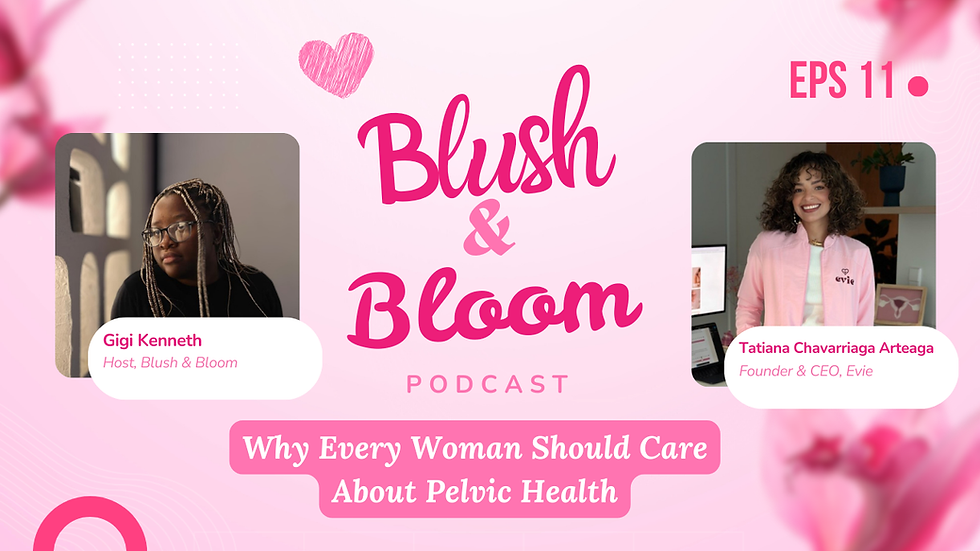The Myths That Harm African Women in Healthcare | Blush & Bloom Podcast | Ep. 12 with Dr. Adanna Chimere
- Asele Team
- Aug 26, 2025
- 3 min read
Updated: Aug 27, 2025

When it comes to women’s health, myths and stigma still shape how care is delivered and, too often, how it’s denied.
From painful periods dismissed as “normal,” to mental health policies that look good on paper but fail in practice, women, especially African women, face systemic barriers that prevent them from being seen, heard, and treated.
In this episode of Blush & Bloom, we spoke with Dr. Adanna Chimere, medical doctor and strategic lead at Glacie Health, a digital health company tackling health inequities through culturally relevant solutions.
Dr. Adanna shares her journey from studying medicine to working across Africa, the Caribbean, and the UK, and how her experiences revealed both the gaps and opportunities in women’s health.
In This Episode, We Cover
✨ Why pain should never be dismissed as “just part of being a woman”
✨ How terms like “sanitary” reinforce stigma around menstruation
✨ The myth that fibroids and endometriosis are rare in African women
✨ Why policies on paper don’t always translate to real access to care
✨ The role of cultural context in building sustainable health solutions
✨ What needs to change for women to feel truly seen and heard in healthcare
Breaking the Silence Around Women’s Health
Dr. Adanna reflects on the years-long delays women face in being diagnosed with endometriosis simply because painful, heavy periods are brushed off as “expected.”
In the Caribbean, she noticed fibroids appearing at unusually young ages, while in Black women globally, conditions like fibroids, diabetes, and hypertension appear at higher rates.
Her takeaway: women’s symptoms are not rare, and they are not imaginary. What’s rare is listening.
From Policy to Reality
While pursuing her Master’s in Public Health, Dr. Adanna examined Nigeria’s Mental Health Act, only to find it was more symbolic than practical.
Insurance often excludes coverage for antidepressants, and systemic gaps leave women especially vulnerable.
She emphasizes that health interventions must be sustainable and replicable. A program that works in the UK should adapt to St. Lucia or Nigeria or risk being another short-lived initiative.
Why Language Matters
Something as small as language can reinforce stigma. Why do we still call them sanitary pads?
As Dr. Adanna points out, menstruation is not unsanitary; it’s a normal biological process. Shifting how we talk about women’s health can create safer, clearer, and more supportive spaces for women and girls everywhere.
About Our Guest: Dr. Adanna Chimere
Dr. Adanna Chimere is a medical doctor and product lead at Glacie Health, where she helps build digital health products designed for underserved communities.
With clinical experience across Nigeria, the Caribbean, and the UK, she combines medicine, product development, and advocacy to challenge stigma and close health equity gaps.
Connect with Dr. Adanna
Instagram: @nnem__
LinkedIn: Dr. Adanna Chimere
Resources & Links
More from Asele
✨ Visit Asele – asele.tech
✨ Try the Asele app – asele.health
✨ Join our WhatsApp community – Join Here
✨ Follow us on Instagram – @asele.tech
✨ Follow us on LinkedIn – Asele
✨ Listen on Spotify – Blush & Bloom
✨ Listen on Apple Podcasts – Blush & Bloom
✨ Watch on YouTube – Episodes
💬 What’s one myth about women’s health you think needs to be challenged? Share in the comments.
🔔 Don’t forget to like, share, and subscribe so you never miss an episode.



Comments